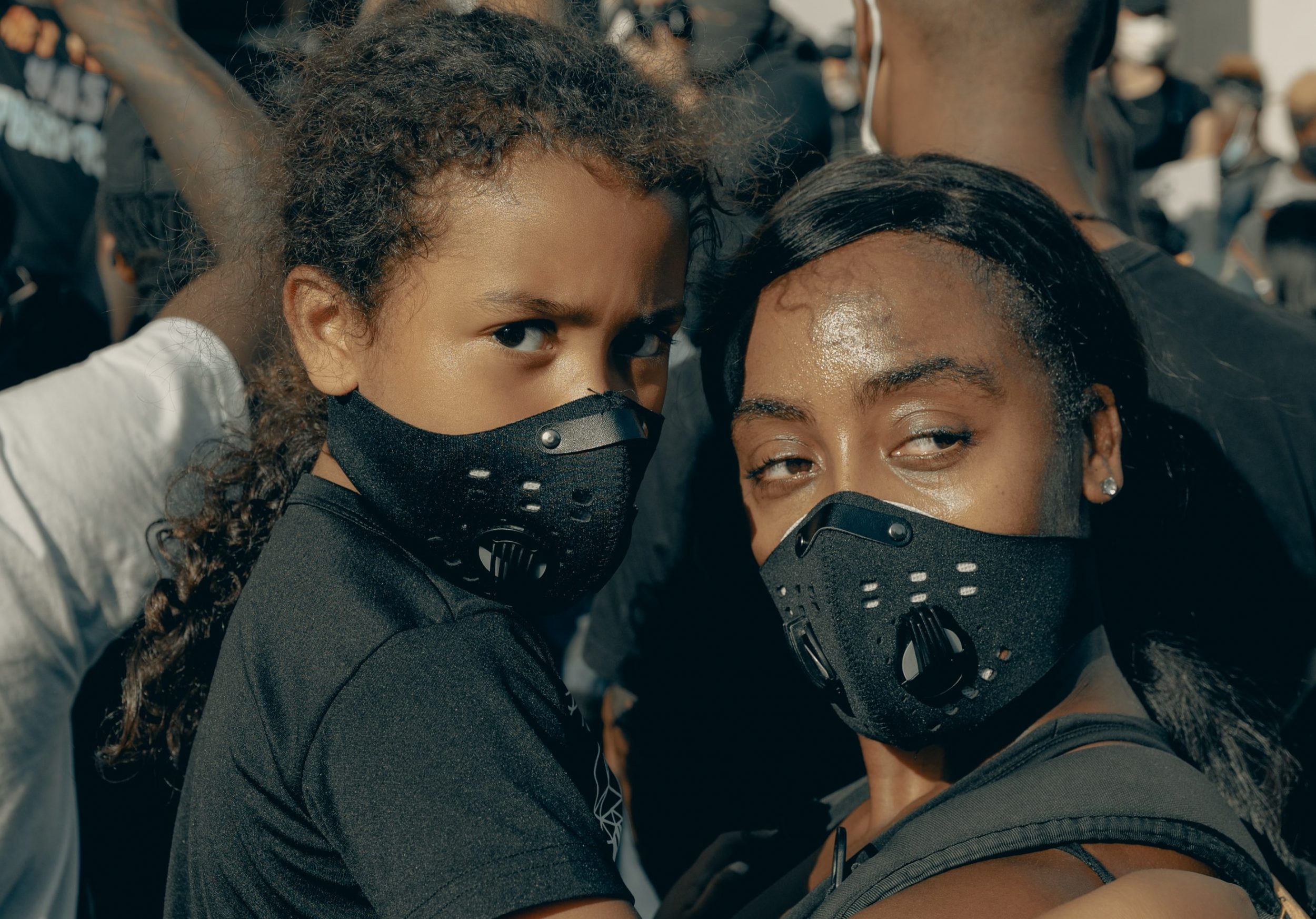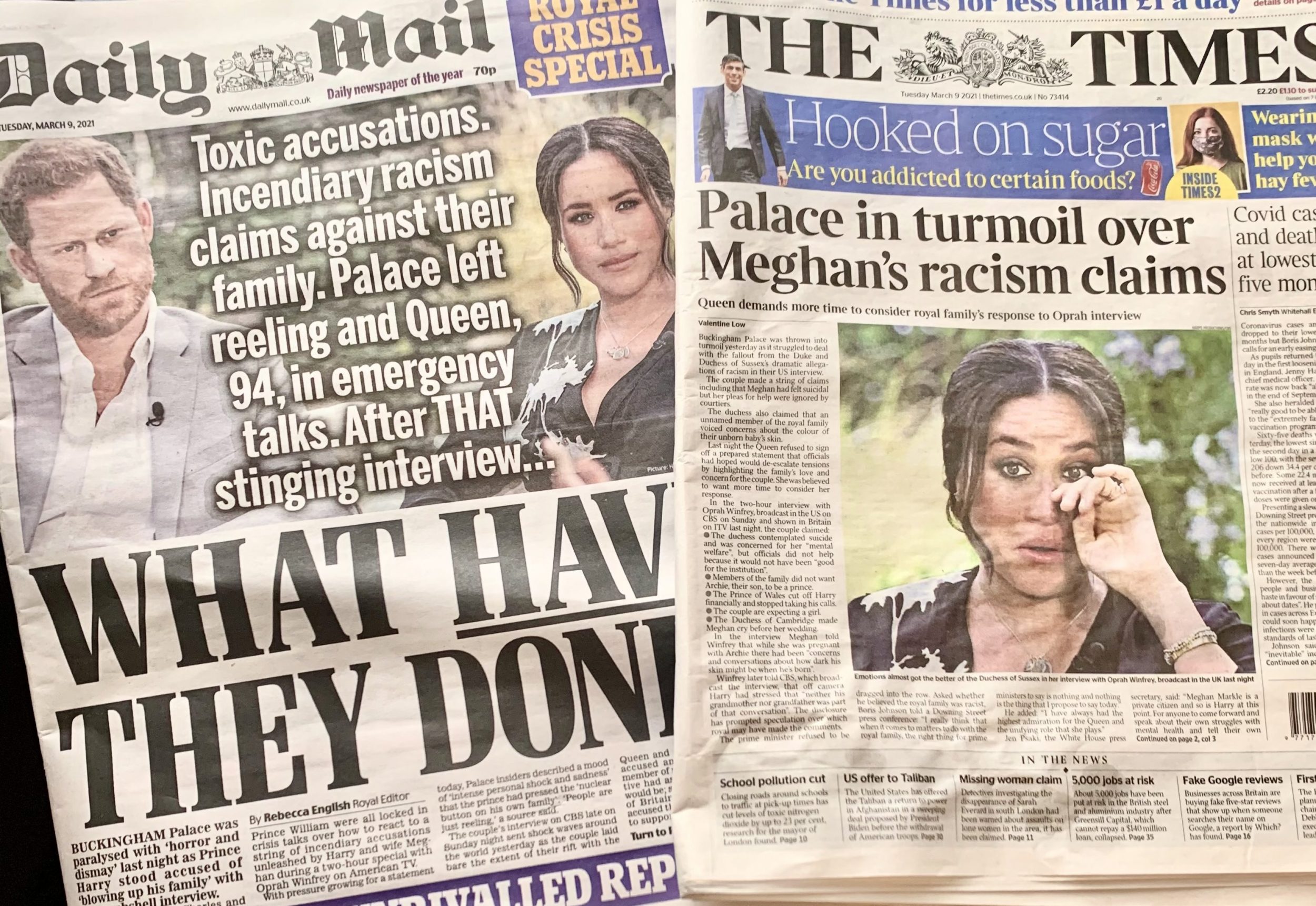 LSE’s Professor Shakuntala Banaji reflects here on the concept of cancel culture and holding those in power accountable, inspired by her participation in the Duck-Rabbit podcast. Shakuntala’s forthcoming book, co-authored with Ram Bhat – Social Media and Hate – demonstrates how forms of identity and self-expression are punished through a range of hateful and dehumanising practices on and offline. It also analyses the links between histories of discriminatory violence and the vitriolic trolling of political activists, scholars and ordinary social media users who are outspoken about equality and justice.
LSE’s Professor Shakuntala Banaji reflects here on the concept of cancel culture and holding those in power accountable, inspired by her participation in the Duck-Rabbit podcast. Shakuntala’s forthcoming book, co-authored with Ram Bhat – Social Media and Hate – demonstrates how forms of identity and self-expression are punished through a range of hateful and dehumanising practices on and offline. It also analyses the links between histories of discriminatory violence and the vitriolic trolling of political activists, scholars and ordinary social media users who are outspoken about equality and justice.
What is ‘cancelling’ and the implications of using the term
In April 2021, only months before the Euro2020 finals would precipitate an avalanche of public racism against the young Black players in the England team, leading to calls for racist fans to be ‘banned’ from matches, I participated in my colleague Paul Dolan’s Duck-Rabbit podcast for an episode entitled ‘Freedom of Speech’. During the discussion, the phrase ‘cancel culture’ was used at various points as a proxy for unfair political censorship and at others it was equated with bullying – the implication being that those being cancelled were ‘underdogs’. We had a fierce debate about the history and the practices associated with the term and the attitudes and values which might trigger what has come to be called “cancelling” or “calling out”. Yet, we barely touched the tip of the iceberg around the politicisation of ‘free speech’ and disingenuous weaponization of the term by rightwing and far right individuals and organisations.
Debates over who can speak publicly and the terms on which such contributions are moderated are always strained because they go to the political heart of how we live and want to organise our societies. Therefore, it is not surprising that questions around the legitimacy of ‘cancelling’ (‘cultural boycotting’ according to Lisa Nakamura) arise with increasing frequency. Fears and anxieties about being cancelled have also become pervasive.
Yet there is no shared consensus on what cancelling actually is. Although the term ‘to cancel’ had been around for a while as discussed in this 2019 Vox piece, it drew more attention from 2017 onwards when it was appropriated by rightwing commentators in the US around the time that the #MeToo movement was growing in visibility and impact. Digital cultures’ scholar Pippa Norris suggests:
“The concept of a ‘cancel culture’ can be defined broadly as attempts to ostracize someone for violating social norms. The notion has also been understood more narrowly as “the practice of withdrawing support for (or canceling) public figures and companies after they have done or said something considered objectionable or offensive” [Lizza, 2020]. This practice is analogous to the tactic of consumer-boycotts … a common form of political activism.”
Social norms, however, are far from fixed, and they often include the most inhumane and vicious of behaviours. To better understand the politics behind so-called cancel culture, it is vital to connect the new wave of debate around ‘cancel culture’ to histories of repression, including attempts to ban strikes and to beat up or dismiss unionising workers, the use of bullets, water cannons and tear gas against democratic protestors, the incarceration of activists and whistle-blowers and so on. The might of the state including media, legal apparatuses and vigilante mobs is often deployed to suppress rights’ activists from marginalised communities without falling under the derogatory connotations of ‘cancel culture’. When asked to comment on the supposed ‘cancelling’ of alleged sexual predators in the media in India, it was therefore to older histories that I turned, distinguishing between the aims and achievements of different boycott movements – notably that of apartheid South Africa.
Taking a cue from scholarship on histories of suppression and dissent – from casteism, colonisation and slavery to decolonial struggles, the civil rights movement and decarceral politics – it is important to point out the uses and direction of actual political and economic power within these debates. Many of the people accused of bullying and ‘cancelling’ others hail from historically marginalised and oppressed groups and often from an intersection of these groups. This does not make them infallible, but it does suggest the legitimacy of underlying grievances.
By contrast, many of the people whose claims to being ‘cancelled’ are amplified by the media – for instance Chris Pratt, Jeremy Clarkson and Lawrence Fox – have previously been asked by concerned colleagues to tone down their prejudice. When asked privately to account for the ongoing harm that their words and actions cause, few of these people have been willing to do so. When cornered through often brief but intense negative media and social media attention, many economically secure or politically powerful commentators have invoked legal and other measures to safeguard their reputations. Frequently, their followings increased, and they acquired further lucrative contracts. These ironies are what provoked Danielle Butler to call the phrase ‘cancel culture’ a ‘dog whistle’ and ‘misplaced hysteria’ that is ‘paradoxical in that its opponents manage to claim it’s both harmfully punitive and performative virtue signalling.’ Powerful groups telling less powerful ones to mind their language and tone is not new.
A politicised context for a disingenuous concept
In 2020, oddly timed at the height of the Black Lives Matter protests, which should have called for some collective self-reflection on the part of those in power, Harper’s magazine published an open letter bemoaning the dangers of so-called cancel culture. Some of the signatories had previously championed social justice causes, which lent the letter some superficial legitimacy. The letter, full of doom-laden assertions about ‘disproportionate punishment’ and ‘restriction of debate’ fed into a staple disingenuous trope of rightwing discourse: the idea that a self-indulgent, censorious band of woke liberals and left-wingers (sometimes collectively called Social Justice Warriors or SJWs) were interfering with the rights of true patriots.
Just to be clear, the culture of banning people from work for their opinions, choices and/or their dress is extremely common: as those wearing veils at work find themselves without jobs or at the centre of controversies in France, and those trying to get justice for Palestinians find themselves ruthlessly shamed by political opponents in the media and even reported to the police through Prevent in the UK. Nevertheless, it is usually when the calls for banning are associated with civil rights and political correctness that hyperbolic phrases such as ‘mob-mentality’, ‘online lynching’ and ‘social death’ elevate the fate of celebrities or politicians being asked to be accountable for prejudiced words and actions to that of historically oppressed and marginalised communities. The Harper’s letter also drew criticism, notably from scholars and commentators who had a much deeper understanding of power structures and a keener sense of histories of censorship, discrimination and hate.
Some people have always been silenced and policed
One of the most concise and accessible pieces on the conflicting genealogy of ‘cancel culture’ is Aja Romano’s 2021 The second wave of cancel culture: How the concept has evolved to mean different things to different people. Romano notes that while the boundaries of public and private speech have always been contested, recently many more who were traditionally excluded from public discourse and debate have begun to voice concerns and claim rights from those with centuries of privilege. If we happen to hail from a historically marginalised and oppressed group, if we’re Black or from another community of colour in a primarily white-led nation and/or from an underprivileged caste, religious or class background, a woman in a male dominated field, and/or neurodiverse and attempting to find jobs traditionally curated by those from wealthy, neurotypical, majority ethnic or religious backgrounds, it’s likely that in order to succeed we had to silence or constrain ourselves. This might have been by trying to modify or suppress some of our passions and desires, to ignore the exhaustion and trauma of being subjected to discrimination, or even by trying to disguise our appearance and behaviour through speaking and dressing more like an established powerful group.
If we’re queer teenagers or young adults questioning our gender or sexuality in mostly conservative communities, we’re quite likely to be policing and censoring ourselves or being coerced into particular forms of self-presentation. This can happen in the most intimate family or community spaces. Not doing these things, being “unapologetically oneself”, can lead to jobs not being offered, homelessness, or extreme physical and emotional violence, depression and anxiety.
While it would be simplistic to insist that no ordinary or well-meaning people get caught up in social media ‘pile ons’ and that there’s nothing we could do to make social and mainstream media discourse less vicious, it’s equally misleading to think that cultures of silencing (now called cancel culture) are a prerogative of the left or liberals online. Trolling, flaming and doxing as well as incitement to violence are only some of the forms of social media hate that keep many women and ethnic or religious minorities silent or push them out of the public sphere.
Moving forward: those of us who can learn, should; those who cannot should be held accountable
I do not think that there are easy answers, and there will always be a need to fight for freedom of speech balanced alongside other freedoms such as the right to life. However, many of us fall short in our understanding of the privileges we enjoy (in communicative and other arenas) through some aspects of our identities, while usually being deeply alert to the ways in which we have been or are being suppressed by others.
Discovering that we have harmed someone because of an unexamined group prejudice or a tendency to speak for others rather than to listen can be profoundly discomfiting. Being called out on this publicly – in person or via the speedy and ubiquitous vehicle of social media – can be humiliating and cause anxiety; while losing a job or a contract over it can be a scarring experience. But those experiences of shame and discomfiture or betrayal and resentment simply cannot equate to being the recipients of constantly legitimised structural and personal prejudice, discrimination and oppression; nor can they be a reason for allowing those in positions of power – and their followers – who explicitly degrade others, endorse such prejudices, and/or fuel violence, to escape accountability and consequence.
Many of us can learn to do better when it comes to holding ourselves and those in power accountable for injustice, and working towards collective liberatory change. Without telling others how they can and cannot speak, we can pay more attention to the ways in which how we speak and what we say (both on and offline) affects others’ mental health and is or is not effective. Political polemics were damaging to solidarity long before the internet.
We need time and space to learn, to organise, and to evaluate the relative destructiveness of someone using a slur thoughtlessly, deliberately or acting in a way that consistently dehumanises or harasses and violates members of another social group. Compassionate, loving and critical classrooms – where they exist – can be important spaces for such uncomfortable endeavours, as can scholarly papers, imaginative fiction, and social movements: I have learnt an enormous amount from my students, through reading, and from the communities I’ve worked with over the past three decades.
The impulse to hold individuals and states accountable through cultural and political boycotts arises from ongoing histories of racist, colonial, misogynist, classist and homophobic silencing. A sustained and genuinely reflexive examination of the dangers posed by so-called ‘cancel culture’ for individuals and for democracy as a whole cannot but conclude that its harms and dangers are being deliberately exaggerated in contrast to continuing histories and experiences of structural prejudice, discrimination, dehumanisation and violence.
**With thanks to Akile Ahmet, Bingchun Meng and Wendy Willems for comments on this piece.
This article gives the views of the author and does not represent the position of the Media@LSE blog, nor of the London School of Economics and Political Science.
Featured image: Photo by Markus Winkler on Unsplash





